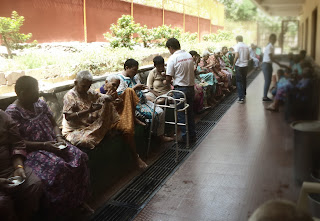Girl marriage and social taboos
When looking at the statistics of the age of women married in India, we are always overwhelmed with the number showcasing the situation of early-marriage which prevails heavily. There are multiple reasons that Indian parents wash-off their hands from the girl child. They consider it their responsibility and want to get rid of it as early as possible. Some think that if a girl is sought to marry late, it is likely that a groom won’t be found. There is societal pressure as well which keeps a hawk-eye on to the growing age of the girl in their society. In many parts it is the past prejudices around marriage e.g. early marriage means early parenthood & thus when children get older their parents will not be that old, some consider that rape cases may increase if a girl is not married early. Economically backward states like Rajasthan, Madhya Pradesh, Odisha, Bihar, Jharkhand, Uttar Pradesh etc. lead in numbers.
Marriage is nonetheless one of the reasons of declining sex ratio of the country (919 female per 1000 males at birth – this has increased recently from 914 in earlier census). Parents think that girl will be sent off to the new house and will not be taking care of them in old age, so there is more preference for a son. They also think that girl would be house maker and will not be bringing wages to home, hence a burden to the house. Some think that men are stronger than women and are thus safer socially, unlike a woman who is susceptible to eve-teasing. However, the devil in the room is the Dowry system. This one thing has been banned in India decades ago but shamelessly remains unabated in the ground. There is increased drama of pomp and show in the modern marriages. This induces others to spend more. Some even spend taking loans from the banks or private lenders in the market or any relative of them. There are other problems attached to this such as wastage of food, unnecessarily showing their might to someone who does not care. Even some politicians and actors hold bigger ceremonies and proliferate such culture. Schemes like Beti ‘Bachao, Beti Padhao’ won’t be effective until unless we get away from social evils.
Early marriage and early bearing of the child make women susceptible to long terms health problems, education is down the drain even if the women want to study and do something else than being a house maker. I am not denying that being house maker is not productive. I am implying the use of force and unwillingness to do it – which is the elephant in the room. We have only 23% women participation in the organized jobs. However, in the agriculture sector, women lead with meager state support like property rights.
We are however observing a slow change starting from the urban areas where women are more engaged. Digital revolutions have been helping women to the earlier limited exposure. Now there is a greater chance that start-ups can be run from even their house. What state can do is make more provisions for crèches so that working mother can take care of her baby, generously come forward to grant maternity leave even if it takes toll to budget (well if we can spend on a 3000 crore irrational statue, why not!), stricter ban on dowries (maybe bring an app here as well, but it should be participatory unlike so many useless rolled out rotting ones), clean public and private sanitation availability and dressing rooms etc. The telling situation is only 18% on bleeding Indian women use a sanitary napkin!


Comments
Post a Comment